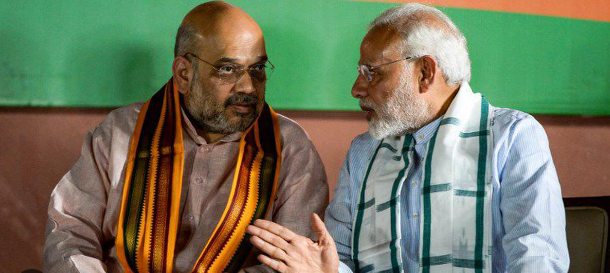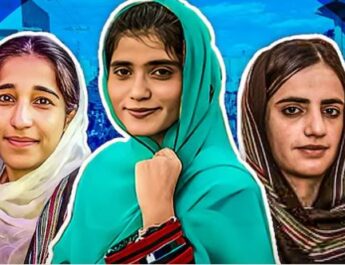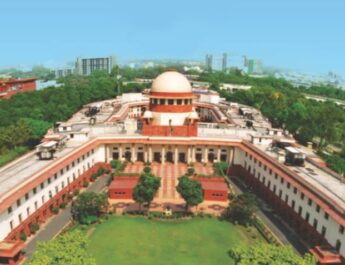What is powering BJP’s South India juggernaut?
A decade ago, the BJP was primarily seen as a party rooted in the Hindi heartland, with support mainly in Hindi-speaking regions like Gujarat and Maharashtra. However, within a short span after assuming power in 2014, the party expanded its influence significantly in the Northeast. Now, it aims to make inroads into South India, a region traditionally viewed as inaccessible to the BJP.
This move towards the South is part of the BJP’s broader strategy to establish itself as a national party. In the short term, the party’s ambition to secure 370 seats, beyond its strongholds, necessitates success in Southern states. Challenges include anticipated opposition in Maharashtra, Bihar, and Karnataka, where the NDA coalition secured 26 of 28 seats in the 2019 elections. Furthermore, untested new chief ministers in Rajasthan and Madhya Pradesh pose a potential vulnerability to the party.
Due to these factors, the BJP has orchestrated a significant campaign in South India, spearheaded by Prime Minister Narendra Modi, who has made close to twenty visits to the region in recent months. Concluding his rapid tour of South India on Tuesday, Modi conducted a roadshow in Kerala and a public rally in Tamil Nadu.
In the past six days, Modi traversed the entire South, engaging in roadshows, actively promoting his party, and energetically confronting opponents, particularly the ruling DMK in Tamil Nadu and the former ruling BRS in Telangana. In Andhra Pradesh, he shared the platform with former CM Chandrababu Naidu and Pawan Kalyan, the two BJP allies in the state, in preparation for the forthcoming simultaneous Lok Sabha and assembly elections.
For the first time, Kerala, Tamil Nadu, Andhra Pradesh and Telangana have emerged as priority states for the BJP since it is in these states where BJP sees the biggest scope to add more seats, besides just a few other states in other parts of India like West Bengal.
BJP’s Kerala strategy
In Kerala’s political landscape, the CPI(M)-led Left Democratic Front (LDF) and the Congress-led United Democratic Front (UDF) have historically held sway. However, the BJP has now emerged as a significant contender challenging these established alliances. There is a noticeable shift towards a three-way competition in various Lok Sabha constituencies, deviating from the conventional two-party dominance.
The BJP has nominated two Union ministers, Rajeev Chandrasekhar for Thiruvananthapuram and V Muraleedharan for Attingal. Notably, several prominent Congress leaders have switched allegiance to the BJP, including Padmaja Venugopal, daughter of former chief minister K Karunakaran, and Anil Antony, son of former defence minister and Congress stalwart AK Antony.
Just ahead of the Lok Sabha elections, Kerala Janapaksham (Secular) leader P C George merged his party with the BJP, a move that saw him, his son Shaun, and other party leaders transition to the BJP.
The UDF and LDF have displayed a lack of cohesion in countering the BJP, with each accusing the other of fragmenting the anti-BJP vote.
Factors contributing to the BJP’s growing support include its increasing popularity among the youth, the decision to outlaw the Islamist organization Popular Front of India (PFI), and the strong leadership of Narendra Modi. The developmental initiatives undertaken by the Modi government in Kerala, such as the Kasaragod-Thiruvananthapuram six-lane highway, Kochi Metro, Cochin Shipyard, Mahe and Alappuzha bypasses, flyovers, and smart city projects, are expected to bolster the party’s prospects. Additionally, the BJP’s effective engagement with the Christian community is anticipated to work in its favor.
BJP’s Tamil Nadu strategy
Historically, the BJP has faced challenges in gaining traction in Tamil Nadu, despite its rise as a dominant force in North India. In 2014, the BJP and its ally PMK secured just one seat each in the state.
During that period, Tamil Nadu witnessed a remarkable victory for the ruling AIADMK led by J. Jayalalithaa, overshadowing the DMK nationally. Contesting independently on 39 seats, the AIADMK claimed 37 victories. State BJP president Pon Radhakrishnan won in Kanyakumari, while PMK’s Anbumani Ramadoss secured victory in Dharmapuri. The BJP’s vote share stood at 5.5 percent.
In the 2019 elections, the BJP failed to secure any seats, with Edappadi K. Palaniswami of the AIADMK, a BJP ally, being the sole opposition leader to triumph as the DMK swept the polls. The BJP’s vote share dropped to 3.66 percent. Challenges such as the language barrier and a lack of strong leadership in the state have hindered the BJP’s progress in Tamil Nadu.
Annamalai’s grassroots campaigns and his direct challenge to the opposition DMK have sparked optimism for the BJP in Tamil Nadu. His rapport with the public and his confrontations with the ruling DMK have thrust the BJP into the spotlight in the state. The extent to which this visibility will translate into electoral success in terms of votes and seats remains uncertain.
While the BJP has not formed an alliance with its traditional partner AIADMK, it has forged partnerships with over half a dozen other parties in the southern state. The latest addition to this coalition is PMK. Collaborations have been established with parties such as Tamil Manila Congress led by GK Vasan, TTV Dinakaran’s Amma Makkal Munnetra Kazhagam (AMMK), TR Pachamuthu’s Indhiya Jananayaga Katchi (IJK), AC Shanmugam’s New Justice Party (NJP), and John Pandian’s Tamizhaga Makkal Munnetra Kazhagam (TMMK).
Veteran Tamil actor R Sarath Kumar merged his Akila Indiya Samathuva Makkal Katchi (AISMK) with the BJP. Additionally, the influential Pattali Makkal Katchi (PMK), known for its Vanniyar caste support in northern Tamil Nadu, has declared its intention to join the BJP-led NDA. Discussions are also underway between the BJP and the late Captain Vijayakanth’s DMDK for a potential alliance.
BJP’s Andhra Pradesh strategy
During the 2019 elections, the BJP contested 24 out of 25 seats in Andhra Pradesh but did not secure any victories. The TDP emerged victorious in three seats, while the YSRCP swept the polls by winning 22 seats. This time around, the BJP, with potential for growth in the state, has forged a robust alliance for the simultaneous assembly and Lok Sabha elections.
In a significant move, the BJP, TDP, and Pawan Kalyan’s Jana Sena party have united to contest the elections jointly. While the BJP’s vote share in 2019 was below 1%, the TDP garnered close to 40%, and Jana Sena secured approximately 6% of the vote.
According to reports from ET, the BJP is aiming for seven Lok Sabha seats and over 20 assembly seats in the state. While the TDP may consider allocating seven Lok Sabha seats to the BJP, it could offer fewer assembly seats. Naidu has purportedly proposed 30 assembly and 8 Lok Sabha seats for his allies. Jana Sena is set to contest 24 assembly and 3 Lok Sabha seats, resulting in the BJP securing 5 Lok Sabha and 6 assembly seats.
With the electoral battle shaping up as a direct face-off between the YSRCP and the BJP-TDP-Jana Sena alliance, the BJP is optimistic about securing multiple seats. For Naidu, these elections are crucial for his party’s survival. Another defeat could marginalize his party, prompting him to urge voters to consider this as a ‘last chance’ opportunity.
BJP’s Telangana strategy
In Telangana, the BJP has been experiencing a notable upsurge. During the 2019 elections, the party contested all 17 seats and secured victories in four. While the BJP’s vote share in the 2018 state elections stood at 7%, it saw a significant increase to 19.7% in the 2019 Lok Sabha polls.
The party’s vote share in Telangana continued to rise, reaching 13.88% in the assembly polls last year, with its seat count increasing to eight.
Leveraging its expanding support base in Telangana, the BJP is now setting its sights on winning at least 12 out of the 17 seats and capturing a 35% vote share in the upcoming Lok Sabha elections.
After governing the state for nearly a decade, the BRS is currently grappling with diminished morale post its defeat in the previous year’s assembly elections. Adding to the turmoil, K Chandrasekhar Rao’s daughter K Kavitha was arrested on the eve of the poll dates announcement in the Delhi liquor scam case.
The timing of Kavitha’s arrest has sparked speculation within political circles. Coming in tandem with PM Modi’s visit to Hyderabad and just before the Election Commission’s declaration of Lok Sabha poll schedules, the arrest is viewed as potentially affecting electoral dynamics. There is a belief that this arrest could place pressure on the BRS, which has been contending with defections, while also furnishing the BJP with an opportunity to enhance its influence among voters.
After governing the state for nearly a decade, the BRS is currently grappling with diminished morale post its defeat in the previous year’s assembly elections. Adding to the turmoil, K Chandrasekhar Rao’s daughter K Kavitha was arrested on the eve of the poll dates announcement in the Delhi liquor scam case.
The timing of Kavitha’s arrest has sparked speculation within political circles. Coming in tandem with PM Modi’s visit to Hyderabad and just before the Election Commission’s declaration of Lok Sabha poll schedules, the arrest is viewed as potentially affecting electoral dynamics. There is a belief that this arrest could place pressure on the BRS, which has been contending with defections, while also furnishing the BJP with an opportunity to enhance its influence among voters.




